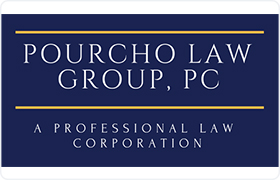San Diego Collection Lawyer, California
Sponsored Law Firm
-
 x
x

Click For More Info:
-
Pourcho Law Group, PC
2618 San Miguel Dr Suite 410 Newport Beach, CA 92660» view mapCollection Law Results Driven Legal Assistance
Ben Pourcho and the legal support team at the Pourcho Law Group, PC have a proven track record of providing the highest quality of legal representation to our clients.
800-936-1321
Craig Eugene Dwyer
✓ VERIFIEDBankruptcy & Debt, Credit & Debt, Collection, Trusts, Wills & Probate
Craig E. Dwyer, Esq., has represented both debtors and creditors in Chapter 7, 11 and 13 Bankruptcy Cases in San Diego, Orange, Los Angeles and Rivers... (more)
FREE CONSULTATION
CONTACTMarc Fabito
International Tax, State Appellate Practice, Administrative Law, Collection
Status: In Good Standing
Harlan Michael Reese
Civil Rights, Insurance, Collection, Bankruptcy
Status: In Good Standing Licensed: 39 Years
Daniel Victor Santiago
Employee Rights, Employment, Collection
Status: In Good Standing Licensed: 28 Years
Katherine Christine Bray
Litigation, Government, Business, Collection
Status: In Good Standing Licensed: 19 Years
Kerry Denton
Credit & Debt, Collection, Bankruptcy, Bankruptcy & Debt
FREE CONSULTATION
CONTACTJason C Tatman
Other, Real Estate, Collection, Commercial Bankruptcy
Status: In Good Standing Licensed: 15 Years
 Ben Pourcho Newport Beach, CA
Ben Pourcho Newport Beach, CA Practice AreasExpertise
Practice AreasExpertise

